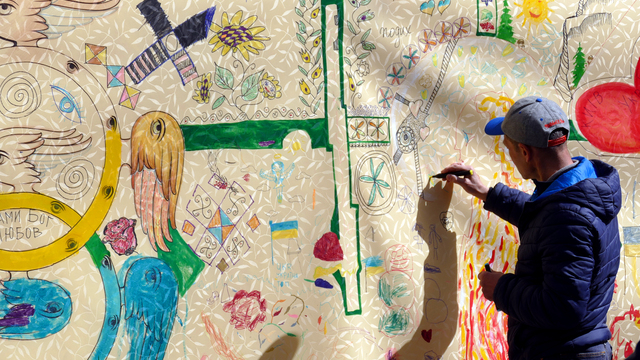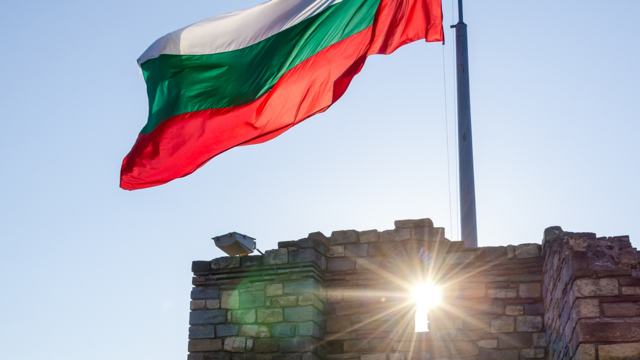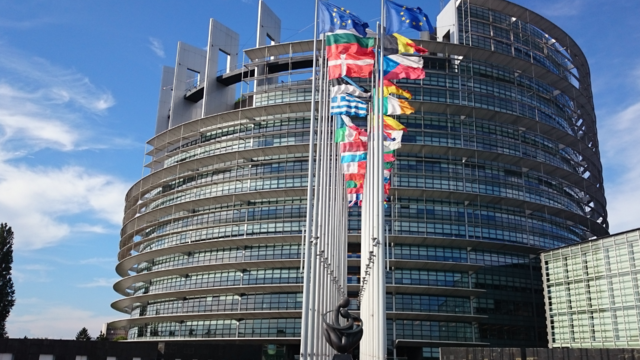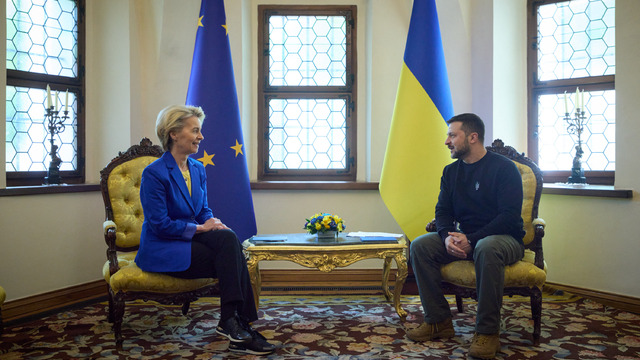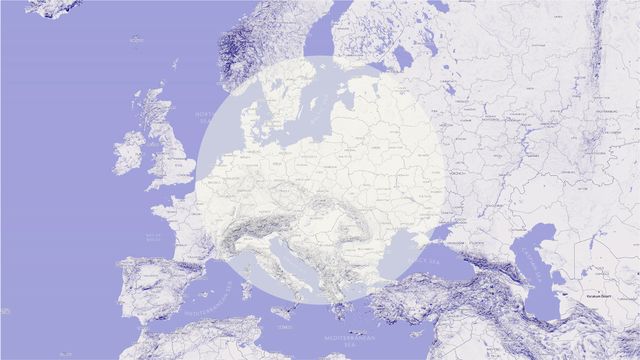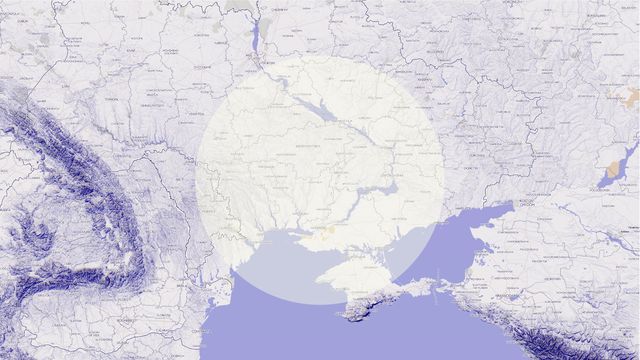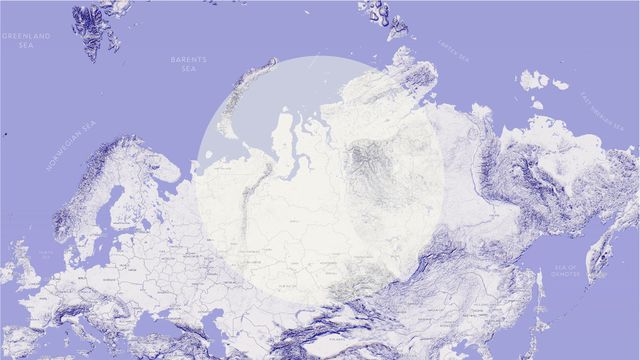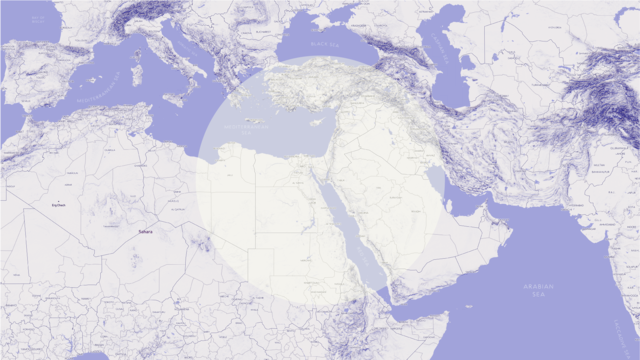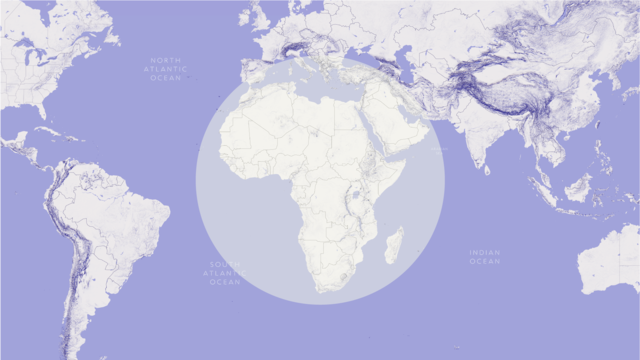Food Security in the Context of the War in Ukraine
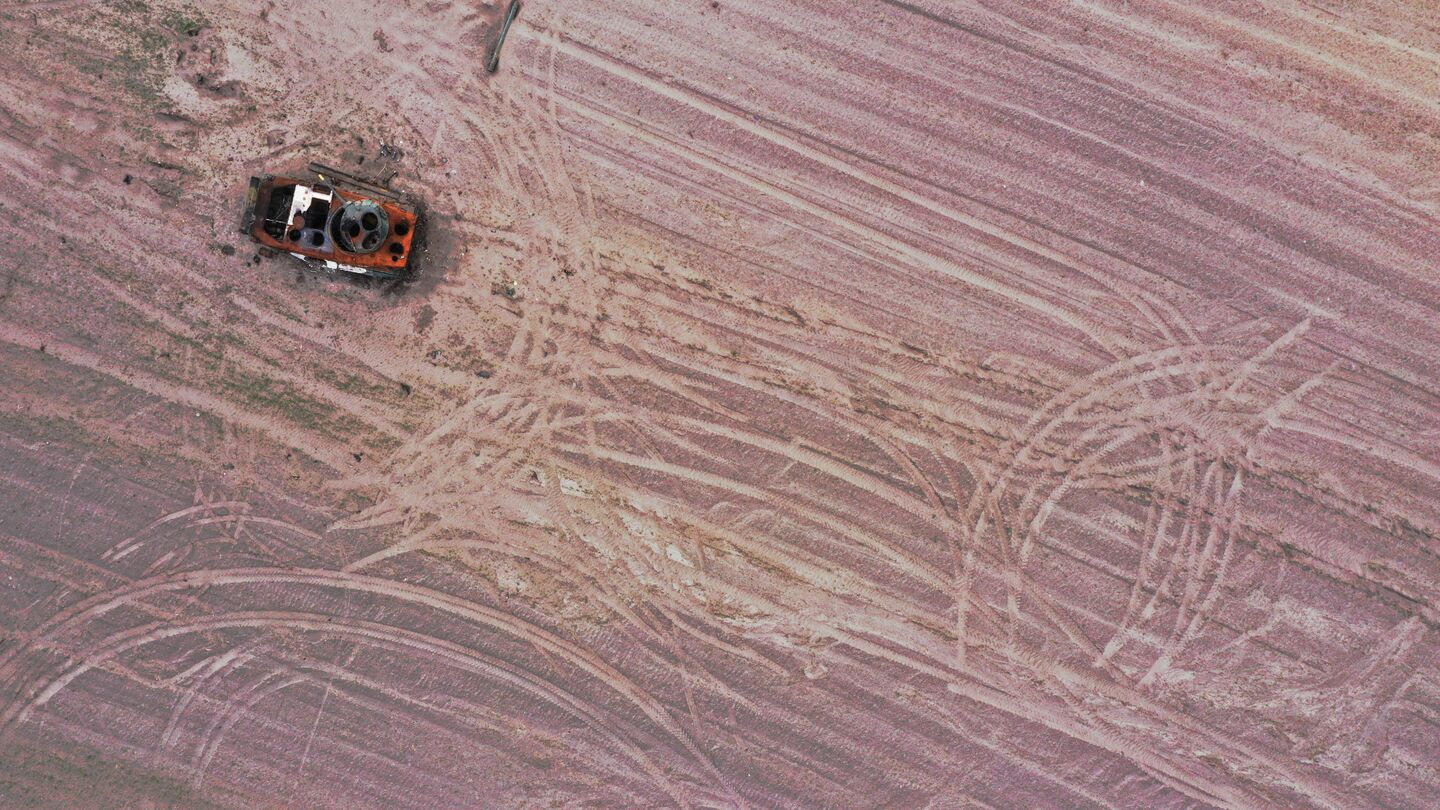
paper
The Russian war in Ukraine has revealed the fragilities of the global food system. For European countries, this is both a domestic and an international issue. At the domestic level, the shortage of grains from the Black Sea region has contributed to inflation. At the international level, it threatens the stability of several countries in the Southern neighborhood and offers an opportunity for Russia to strengthen its soft power.
In a world more fragmented and impacted by the consequences of climate change, it is vital to develop a more resilient food system. In the shorter term, European countries should strengthen their
ability to produce fertilizers, and pursue their efforts to allow the transit of Ukrainian grains to the Middle East and Africa. In the longer term, they should include the Global South in the transition toward a green economy.
Introduction
The recent (March 2023) food shortages in the UK have shown that European economies are not immune to food insecurity. Indeed, in a globalized world with interconnected economies, food security can be threatened by any event disturbing the supply chain: wars, revolutions, natural disasters, epidemics, droughts, or poor harvesting in a part of the world may affect other countries. Other factors are at play as well, such as the price of fertilizers, labor shortages and travel costs, and these affect the food market. Due to climate change and the current instability of the international system, such disturbing events are
likely to become more frequent in the future. Thus, the capacity of a given country to feed its population despite these disturbances represents a core component of its resilience. Food security is a cross-cutting issue, affecting both domestic and international situations (even if unevenly), and addressing trade and agriculture policies as well as security policies, environmental policies, and the international cooperation for development.
The Russian war in Ukraine has deeply affected the international staple trade at a time when the supply chain was already disturbed due to the COVID-19 pandemic. If cereal prices are back to their pre-war level, one should not forget that grains were already expensive prior to the war and this situation was threatening global food security in 2021. Also, the global food crisis is still going on in 2023. Structural factors are at play here, such has the growth of the Chinese domestic demand, which led this country to constitute
stocks and limit its export of fertilizers. European countries have been directly affected by the grain price hike (20% following the start of the war, which led the FAO’s Food Global Index to reach a record level in 2022). Moreover, the war has highlighted the vulnerability of Africa, and even more so, that of the Middle East and North Africa (MENA) region regarding this matter. Indeed, the sub-Saharan countries are more self-sufficient and therefore far less dependent on imports than the MENA countries, where the need for grains is so important that Jessica Barnes has coined the concept of staple security to describe the individual and national strategies to address the anxieties about staple availability and quality.
1.2 billion people are severely exposed to risks linked to the food price hike. If the development partners of Norway and Czechia are not directly impacted by the Black Sea crop shortage, they are indirectly affected by the price hike and could be affected by the price of fertilizers as well. Moreover, some key countries in the European neighborhood (Turkey, Egypt) are directly impacted, and their potential destabilization would have dire consequences for the European Union.
The impact of food security on Czechia and Norway
In terms of food security, the Russian aggression in Ukraine is affecting Europe at the domestic level with a rise in food prices, but also indirectly, as it is threatening the stability in its Southern neighborhood, and reinforcing Chinese and Russian narratives and thus their soft power in the Global South.
Food prices are, after energy prices, the second biggest factor behind the inflation in Europe. The cost of food in the EU was 17.99% higher in January of 2023 than in the same month in the previous year. This price hike is even more severe in Central and Eastern Europe, affecting Czechia, among other countries. This situation threatens to cause a recession and favors social conflicts, as wages lag behind the prices of food, but also services and commodities. The Norwegian food system is particularly robust, but the current situation highlights future risks linked to climate change, which will likely affect the country in the next two decades. Moreover, the increase of the natural gas price following the start of the war pushed the giant Norwegian fertilizer producer Yara to slash its production in Europe in 2022. Despite the resilience of this company – in which the Norwegian state is the main shareholder, owning one third of its capital – it has not yet restored its pre-war production. This should be a reminder of this global food crisis which is often not taken into account but which might nevertheless affect even the European countries.
Czechia and Norway are involved in the region through their humanitarian policies, their development cooperation policies, and their economic investments, even though their primary African and Middle Eastern humanitarian and development partners1 are not directly affected by the price hike. The price hike of basic commodities increases the social and territorial imbalance, with the most vulnerable populations (women, the rural population, less educated people) being the most susceptible to food shortages. Countries ravaged by civil war such as Syria and Yemen are also suffering from food insecurity. Thus, the humanitarian situation is likely to worsen in the region, where Norway and Czechia are active (in Iraq, Syria, and the refugee camps in Jordan and Lebanon). Czechia and Norway have also developed long term cooperation policies pertaining to Africa (namely the Sahel, the Horn of Africa, and East Africa) and some Arab countries. They also have economic interests in the region, particularly trade and investment interests.
Moreover, the stability of the region is linked to food security. Bread riots occurred in a not-so-distant past in several North African countries (most notably in Egypt, Morocco, and Tunisia), and the price of cereals likely played a major role in triggering the Arab Spring one decade ago. The stability in their neighborhood is a major concern for European countries, which could be affected by potential state collapses through the resulting new flux of migrants and the development of jihadi organizations. Such key actors as Turkey and Egypt were directly impacted by the shortage of Black Sea grains. Egypt has succeeded so far in diversifying its sources of supply, but still needs structural reforms in the domains of its agriculture, its habits of consumption and its subsidy system to build resilience. The necessity to feed the Egyptian population at an affordable price will remain a major structural factor in the foreseeable future, especially with regard to the debt crisis affecting the economy of this country. Norway and Czechia can contribute to the support for a transition toward sustainable agriculture in the region by sharing their experience and expertise in this domain and reinforcing their scientific cooperations in the fields of agriculture and environment with those countries.
Lastly, food security is linked to soft power issues, not only for Europe, but for the West in general. Russian and Chinese propaganda is more received in the Middle East and Africa than in Europe, and both powers have gained market shares and advanced their geopolitical interests in the region over the past decade. They are very attentive to their image, and when Russia briefly left the Black Sea agreement in the fall of 2022, it came back quickly following the protests of its partners in the Global South. Russia puts the blame for the food shortage on the Western sanctions, even though these sanctions do not concern agricultural goods. This narrative particularly targets Russia’s partners in Africa. If the West fails to address food security issues in the future, it will give a greater opportunity to Russia and China to consolidate their influence in the region. The Ukrainian government seems to understand what is at stake here, and President Zelensky has recently discussed the opening of food hubs in Africa with his Egyptian counterpart President Sisi. In the long term, it would be more beneficial to address these issues on the ground than to try to develop counter-narratives that would put the blame for the food shortage on Russia.
How the West is mitigating the negative global impact of the war policy
At the international level, there are, in particular, two new initiatives that have been key – the Black Sea Grain Initiative and the Food Agriculture Resilience Mission (FARM). The former is an agreement between Russia and Ukraine on the one hand, and Turkey and the UN on the other to ensure that grain exports will continue despite the war. It was signed in Istanbul on 22 July 2022, and was at first valid for a period of 120 days. So far, the agreement has been extended twice and is still valid at the time of writing (May 2023). The FARM was an initiative by France and the UN World Food Programme to support the countries worst hit by the current food crisis by encouraging sustainable agriculture and ensuring agricultural commodities at a fair price for the most vulnerable countries. It does so by focusing on the efficiency of agriculture markets, boosting sustainable local production, and coordinating with the private sector to match food surpluses with the countries most in need.
At the European level, important decisions have been taken, including those for providing emergency financial help and 1.5 billion euros to support the development of sustainable agriculture in the Eastern and Southern neighborhood. Most notably, the EU created “solidarity lanes” as alternative logistical routes for transporting cargo shipments of grain to the Black Sea region by rail, road, and river. 60% of the Ukrainian grain product was exported through the European “solidarity corridors,” and the rest of it through the Black Sea Grain Initiative. Moreover, the EU allocated 7.7 billion euros for food security in the period 2021–2024. As an EU-member, Czechia is supporting this but was also leading the work on it during its presidency of the Council during the second half of 2022. Norway is also participating in the network that discusses these alternative trajectories for shipments from Ukraine.
Nevertheless, a large part of the grains going through these corridors are still filling European silos, thus squeezing Central European producers out of the market. In response, Hungary, Slovakia and Poland decided to introduce a ban on Ukrainian grain, which was in violation of European regulations. Czechia – whose wheat exports dropped by 200,000 tons between August 2022 and January 2023 – adopted a more responsible position and refused to break the EU market rules. The Czech Agriculture Association urged the European Commission to quickly export the grains in silos to Africa and the Middle East.
Global food security and eradicating hunger are the main priority in Norwegian development policies. In addition to supporting the international and European initiatives referred to above, in November 2022 the Norwegian government also launched a strategy that intends to assist vulnerable countries in becoming more self-sufficient. The strategy is based on organizing farmers, especially local small-scale producers, by applying lessons from Norway’s own historical experience in the field of agriculture.
While all these initiatives are crucial to maintaining a certain level of food exports from Ukraine, they cannot compensate for the damage Russia’s attacks caused to Ukraine’s transport infrastructure. The damage to Ukraine’s arable lands, farms, storage facilities and agricultural machinery caused by Russian strikes has already affected Ukraine’s production and export capacity. Combined with Russia’s decision to ban exports
of fertilizers, this is likely to continue to have a negative effect on the food prices. Based on this, the IMF is urging governments and donors to step up support for the most vulnerable, ensure the agriculture market’s efficiency, and cut harmful subsidies. Some countries (e.g. Tunisia, Egypt) are already struggling with the increase of their external debt due to the cereal price hike and have no more room left for structural reforms. A debt alleviation would help them to navigate through the ongoing crisis.
CONCLUSION
Norway, Czechia, and the European Union need to develop a holistic approach to food security. As Yara’s crisis has demonstrated, this issue is linked to energy issues. Yet, with climate change, energy will probably become costlier in the future. Thus, it is vital to prepare and develop organic fertilizer, more sustainable production, and a short circuit from the producers to the consumers. This transition must be addressed domestically, but also at the international level, namely by its integration within international development strategies. Notably, agriculture issues should take a central position in the European Green Deal and the Green Partnerships concluded between the EU and its African partners following the document signed with Morocco in 2022. In this regard, accountability and a strong civil society are the best guarantees that the commitments of the governments will be fulfilled. Therefore, the EU should put the support for democratization and the rule of law back to the top of its international agenda. In the long term, democratization would help to prevent social and political instability in the EU’s Southern neighborhood.
POLICY RECOMMENDATIONS
→ Czechia and Norway should consider debt cancellations for countries threatened by food insecurity and intensify their diplomatic efforts to this end at the international fora.
→ The development cooperation of both countries should focus on food resilience, notably by promoting sustainable agriculture and the reduction of the use of chemical food fertilizers that proved to be a problematic part of the food production system.
→ In the shorter term, helping the company Yara to restore its full production capacity for fertilizer should be a priority not only for the Norwegian government, but also for the European Union.
→ While national initiatives are welcome, they cannot replace the broader international coordinated efforts. Both Czechia and Norway should therefore continue to actively support initiatives to further strengthen both the international and European efforts to mitigate the negative consequences of the war.
